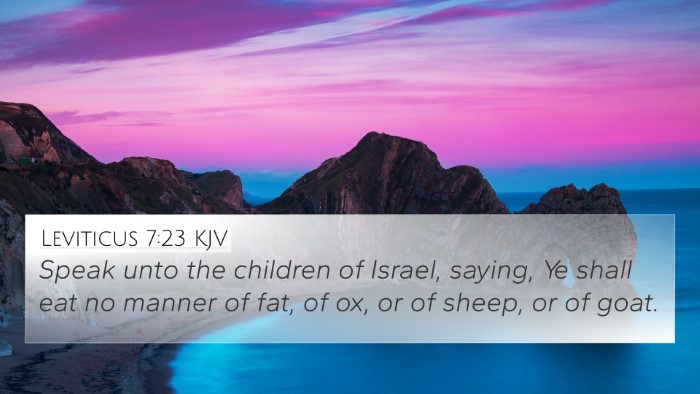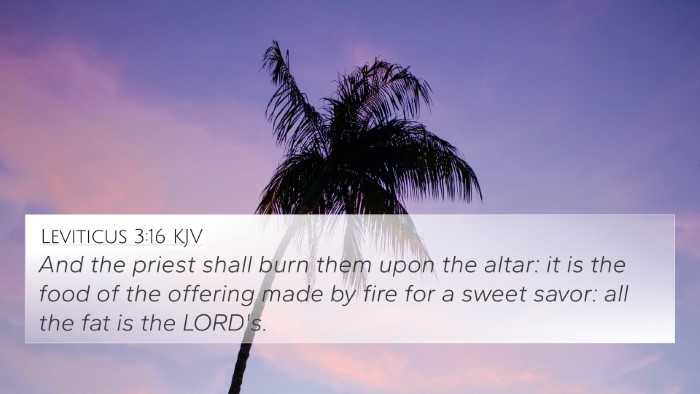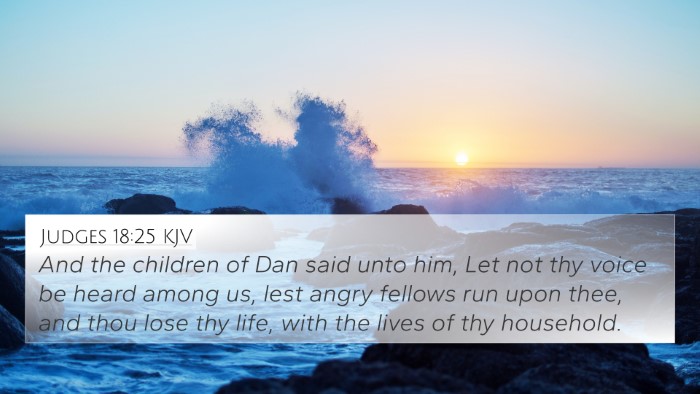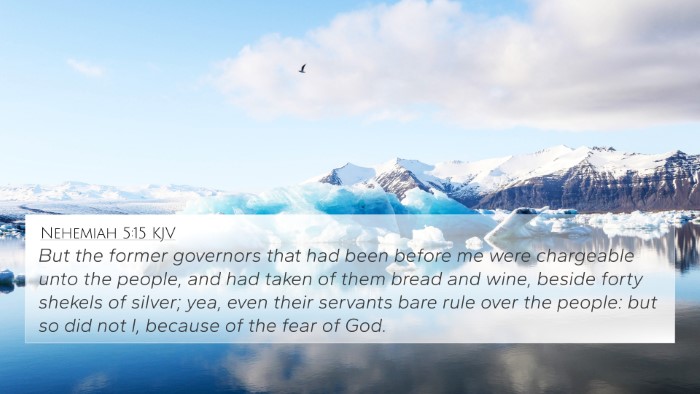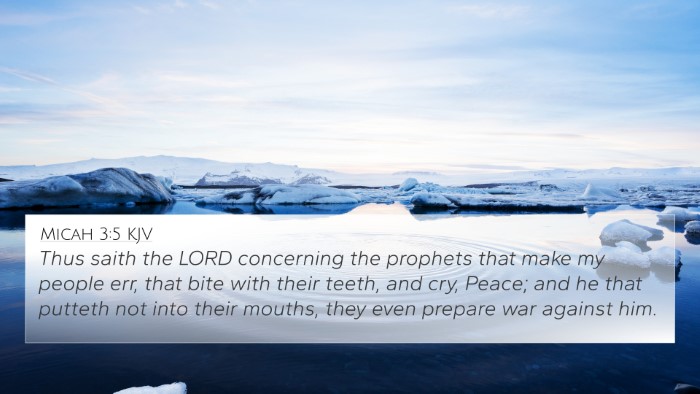Understanding 1 Samuel 2:16
Verse: "And if any man said unto him, Let them not fail to burn the fat presently, and then take as much as thy soul desireth; then he would answer him, Nay; but thou shalt give it me now: and if not, I will take it by force."
Introduction
This verse from 1 Samuel 2:16 captures a significant moment in the narrative of Eli's sons, who were priests at Shiloh. Their actions serve as a vivid illustration of disobedience to God's laws regarding sacrifice and priestly conduct. To comprehend the profound implications of this scripture, we will draw insights from public domain commentaries including those by Matthew Henry, Albert Barnes, and Adam Clarke. This analysis will also include relevant cross-references that illuminate connections between Bible verses and themes.
Verse Analysis
The verse illustrates not just the corruption of Eli's sons, Hophni and Phinehas, but also highlights a broader spiritual decay among the people of Israel. They demanded the best parts of the sacrifice—specifically the fat—which was reserved for God as a sacred offering, demonstrating a disregard for divine protocol.
Comments from Matthew Henry
- Disrespect for God's Commands: Henry notes that the actions of Eli's sons show a blatant disregard for God’s commands, emphasizing their greed and the consequences of such actions on their ministry.
- Exploitation of the People: The priesthood's corruption is highlighted by their manipulative approach to sacrificial rites, taking advantage of the people who brought offerings.
Insights from Albert Barnes
- The Centrality of Sacrifice: Barnes emphasizes the critical nature of sacrifices in the Israelite worship system, pointing out that these practices were meant to honor God and maintain community relations.
- Contrast with Proper Worship: He discusses the contrast between the proper worship due to God and the overtly selfish and coercive practices of the priests.
Thoughts from Adam Clarke
- Brutality in Worship: Clarke warns against the brutality of the priests' insistence on taking offerings by force, which speaks to a broader commentary on leadership and accountability.
- God's Judgment: Clarke underscores that such behavior would lead to divine judgment, a theme prevalent throughout the scriptures regarding corrupt leaders.
Cross-References
To better understand the implications of 1 Samuel 2:16, here are several relevant Bible verses that connect significantly with this verse:
- Leviticus 3:16: Discusses the prohibition against consuming the fat of sacrifices.
- 1 Samuel 2:12: Introduces the wickedness of Eli's sons as a background for understanding their actions in verse 16.
- 1 Timothy 6:10: Speaks on the love of money being the root of all evil, echoing the greed depicted in 1 Samuel 2:16.
- Jeremiah 23:1-2: A warning against shepherds (priests) who destroy and scatter the sheep, parallel to Eli's sons' actions.
- Matthew 21:12-13: Jesus’ cleansing of the temple showcases a similar corruption in religious practice.
- Proverbs 15:8: Contrasts the sacrifices of the wicked with the prayers of the upright.
- Hebrews 10:26: Warns about the consequences of willful sin after obtaining the knowledge of truth, reflecting the attitude of Eli's sons.
Connections Between Themes
This scripture and the associated commentaries raise essential themes including:
- Corruption in Leadership: A recurring biblical concern where leaders exploit their positions, leading to community disenfranchisement.
- Divine Justice: The principle that divine justice prevails against those who misuse sacred duties.
- The Role of Sacrifice: Sacrificial practices are central to worship, and their distortion leads to severe consequences.
Utilizing Cross-References
For those studying the Bible, using cross-references enriches understanding, revealing how various scriptures inform and illuminate each other. Here are some tools and methods for effective Bible cross-referencing:
- Bible Concordance: A valuable resource for finding specific verses and their connections.
- Cross-reference Bible Study: Engaging with multiple verses to gain a well-rounded understanding of biblical themes.
- Bible Reference Resources: Utilizing guides to navigate scripture relationships and thematic connections.
Conclusion
1 Samuel 2:16 serves as a mirror reflecting the dangers of corrupt leadership and the importance of adhering to God's commands. Through the insights provided by commentaries and related scriptures, readers can grasp the weight of this verse and its implications for spiritual integrity and community worship.



